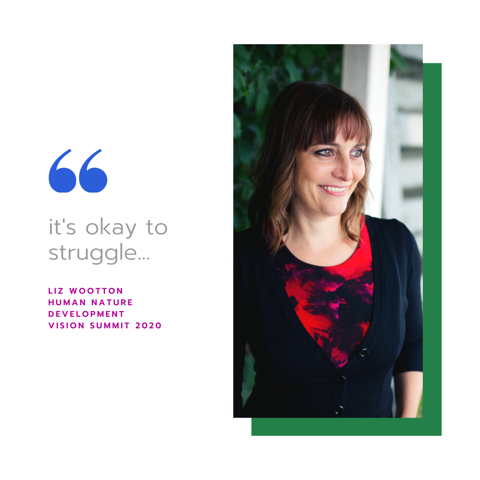business
Revive Your Small Business During the COVID-19 Recovery

If your business was categorized as nonessential at any point during the COVID-19 pandemic, you probably took a financial hit.
But now that the economy is beginning to recover, you have the opportunity to focus on growing your small business. Here’s how to bounce back as a business owner, thanks to Linda Chase of ablehire.org
Administrative Obligations
Don’t wait any longer to take care of any administrative tasks that you’ve pushed to the backburner during the pandemic.
- Taking recent circumstances into account, you’ll need to modify your business plan to properly prepare for the coming months.
- Concerned about your company’s finances? Meet with an accountant for budgeting and forecasting guidance.
- Protect your assets by filing incorporating your business. This guide walks you through all the steps involved in the process.
Focus on Safety
Are you trying to decide whether it’s time to bring your full staff back to work, in person? These resources offer plenty of valuable safety tips.
- Is allowing your staff to work remotely for the long term the right choice for your business? This guide will help you make a plan for running a
fully remote business. - Maybe your staff is ready to come back! To prepare for this exciting development, take these precautions, and keep the conversation going with your staff on how they’re feeling.
- Make sure that everyone frequenting your business stays safe, for example by requiring customers to wear masks, and supporting your customer facing staff in enforcing appropriate mandates.
- And don’t forget to practice some self-care so that you’re ready to help your customers as they begin returning to your business.
Promote Your Business
You need to increase your sales and revenue as consumer confidence is renewed. You can do it with these tips.
- Launch an email marketing campaign to let your long-time customers know about any new developments for your business.
- Are you reopening your brick-and-mortar shop? This guide will help you create attractive window displays!
- Even as people are shopping in person again, social media marketing will still be essential, so make sure to engage with your followers regularly.
The pandemic may have undermined your confidence as a business owner. But if you’ve made it this far, you know that better days lie ahead. By referencing these resources, you’ll be able to take your business from struggling to thriving during the recovery phase.
About the Author: Linda Chase created Able Hire to help people with disabilities build rewarding, successful careers. She hopes Able Hire will be a resource for people with disabilities seeking jobs and for hiring managers seeking a better understanding of what people with disabilities have to offer.
Life in a Pandemic – Zoom Fatigue
Pandemic Series - Zoom Fatigue
Finding the whole online meeting thing a bit draining? Or are you resisting it altogether? That’s understandable. But online meetings are here to stay… so before you give up on them completely, try these tips and techniques from our very own Liz Wootton. Grab a coffee, sit back and relax to watch this video (or scroll down for the transcript).
Whether you love them or hate them, online meetings have become part of the landscape of work and life in 2020 – and let’s face it, are likely to stay that way for the foreseeable future. Most of us have accepted this new reality, albeit reluctantly for some. But it’s fair to say that “Zoom Fatigue” has also become regular vocabulary for many. Some are resisting online meetings. Some are outright refusing them. Others are struggling through, ending their days exhausted and frustrated, and longing for a return to the normal that was, pre-pandemic.
We have a long wait for a time we can safely return to a world of in-person and board room meetings – and even when that time comes, we may find that the world has moved on. Technology, combined with the necessity of the pandemic, has presented an opportunity that previously didn’t exist. Workers now have remote working options that previously weren’t made available to them – and many are loving it. People who had previously been told that working from home was impossible, even to accommodate disabilities or family responsibilities, are now being given the incredible opportunity to prove not only that they can, but also that they can be even more productive than before.
Whether you view online meetings as a short(ish)-term stop-gap solution during the pandemic, or as a permanent life-changing fixture, learning to live with them has to be part of our agenda.
We have been using online meetings at Human Nature Development for remote working for many years, as well as to keep in touch with friends and family in far-off places. So I want to offer some tips for avoiding and dealing with what has lovingly been called ‘Zoom Fatigue’ so you can begin feeling more positive about connecting with others in the online space.
1) Start with self-reflection.
If you dislike online meetings, ask yourself why. What irks you? And what’s behind that? For instance, the ‘obvious’ reason for hating Zoom might be that you can’t make eye contact, you hate sitting in front of a screen all day, using the tech is difficult etc. Under the obvious though, may be something a bit deeper – for instance, attending an online meeting that used to be in the board room can be a reminder of what you’ve lost. And being reminded of something you’ve lost has emotional consequences. It’s hard to accept something you didn’t want – especially when you liked what you had before – because you need to let go of what you had before in order for the acceptance to happen. Loss is difficult. Loss often means a grieving process of some sort.
It’s ok to feel feelings, even about something as supposedly trivial as an online meeting. Change is hard, even if it’s change you want. So be kind to yourself as you work towards acceptance.
2) If you feel uncomfortable being on video, you’re not alone.
Full disclosure here – I spent 3 years at acting school, honing my craft and preparing myself for a career on stage and screen. At the end of that 3 years, I was still uncomfortable as **** on camera. Weird, huh? What I eventually figured out was that I remained uncomfortable because I avoided the chances to practice – the chances to stretch my comfort zone by stepping out of it. That’s a human thing, because we like to stay comfy as much as possible. But the important thing for the average Zoom meeting participant is this:
a. It’s not like being on TV. Unlike me, in my previous life as an actor, your performance in a Zoom meeting is not being scrutinized and criticized. Zoom, Teams, Skype and the rest are merely tools that allow you to connect visually with other humans. If you’re ok being in a room with other people, there is nothing more to fear about the camera in front of you. Think of it like a window which lets the other people see you and you see them.
b. The other people in the meeting like to see your face. It’s not the same as being in the same room as someone, but it still provides visual cues that make communication more meaningful.
3) Be mindful of your energy budget.
Online meetings may feel more draining than in-person meetings. If that’s the case for you, schedule yourself with that in mind. Avoid back-to-back meetings wherever you can. Spread them out, and do energy-replenishing activities in between. Take fresh air, movement and nutrition breaks in between. Think about it this way – if you were previously moving to different rooms or locations between meetings, the fresh air or movement breaks were a natural part of your day that helped replenish your energy. If you previously had a commute, but now your path to work is a short walk from your bedroom down the hall, you might be missing the opportunity to set your brain going while you drive in, and take a moment for yourself as you enjoy the coffee you picked up on the way. Your end of day routine may also be missing the built-in decompression time you had on the drive home.
The things we miss aren’t always obvious but may be an important factor in our day. Once you identify them, you can create new ways of building them into your day with intention. Think about what your typical day looked like pre-pandemic, and include the trivial bits and pieces – water cooler chats, commuting, changing locations or environments, visits to coffee shops. Then think how you could intentionally replace some of that activity in your new working set-up. A quick check in call with a colleague while you have a coffee, walking around your back yard between meetings, journalling before you start work to replace the quiet alone time you had on your commute.
4) Avoid unnecessary meetings.
This, honestly, is advice for life in general, and applies just as much to in-person meetings as it does to online ones. If you can deal with it in a quick phone call or an email, it doesn’t need to be a whole Zoom performance. Likewise, avoid inviting people who don’t really need to be there. Everyone hates being dragged into something they’re not really needed for. Again, this is advice for effective meetings in general.
Be mindful – and avoid any meeting practices that happen just for the sake of it.
5) Always use good meeting etiquette.
This makes meetings better for everyone. Here are my golden rules:
- Don’t multitask (EVER). It may be tempting when you’re on your computer and your notifications pop up, or the other participants can’t see your phone off to the side, but don’t do it! Not only is it rude, but it also drains your own energy faster if your focus is scattered between several tasks.
- Always listen to the person talking.
- Don’t talk or make noise over others, mute your mic if you need to and avoid interrupting. This can play havoc with the sound in online meetings. Instead, keep a pen and paper handy, and make a note of anything you’d like to say so you can raise your point when the other person has finished speaking.
- Avoid side conversations using private chat. This is multitasking, and it means you’re definitely not listening to the person talking. If there’s something you want to talk to someone about, do it after the meeting. Keep your attention on the meeting at hand, and have a separate conversation afterwards.
6) Keep meetings on time and on track.
Start on time, finish on time, and have an agenda. Appointing someone as a facilitator is especially helpful to make sure you keep on track and that everyone has an opportunity to be heard – particularly in meetings with a larger number of participants. You can appoint a second person to take notes and keep an eye on the clock. Gino Wickman’s Level 10 Meeting, which he describes in his book, Traction, is a helpful template to follow here.
7) Celebrate working from home.
Forget the idea that you’re trying to reproduce what you had in the office in your home setting. It’s different, and that’s ok. You may be juggling kids and pets, and that’s ok too. A few years ago, this amazing interview happened on BBC News… Notice the poor guy’s awkwardness, and his wife’s horror when she realises what’s happened…
Those of us who worked from home at the time knew their pain; the awfulness of having your image as a highly professional expert in your field tarnished by the joyful swagger of your tiny child as she exposes your real (and imperfect) life as a parent and spouse.
But now, we no longer have to pretend that our lives outside of work don’t exist. Suddenly, working from home, with all its imperfection, has become the new normal. We shouldn’t have to apologize or feel shame for having a life alongside work, and we shouldn’t have to hide it in order to be seen as professional. We’re all in this together– kids, pets, no make-up faces, messy backgrounds – this is real life – let’s celebrate it!
8) Above all, remember that the person or people you are talking to are REAL HUMANS, and that Zoom, Facetime, Teams, et al are merely tools that allow you to connect with them, when in-person connection is not possible. Humans need other humans. We are social animals – and that makes this pandemic truly challenging for all of us. But we have this gift of technology that allows us to create connection in a way that even 20 years ago wouldn’t have been possible.
Instead of seeing this tech as an obstacle to the in-person, face-to-face connection you’re missing, reframe it as a TOOL for making the otherwise-impossible, POSSIBLE.

If you’d like help making your meetings more effective, or creating a better balance or boundaries for yourself as you navigate your new normal, please reach out today.
It’s what I do, and I’m here to help.
~ Liz
liz@humannaturedevelopment.com
The Vision Summit 2020
Vision Summit
Are you ready to make 2020 your year of vision? If so, we have an exciting (and free!) event to share with you. If you want to clarify and take action on your vision this year, I highly recommend you check out this upcoming FREE online summit.
The Vision Summit is a 3-day online experience (Feb 20-22, 2020) designed to give you the insights and inspiration you need in order to clarify what you want, take steps toward it, and learn to trust and appreciate yourself and your journey. I’m honoured to have been asked to take part – you can catch my interview on February 21st 2020!
Hosted by Heather Evans and Melissa Steginus, two coaches passionate about self-empowerment and manifestation, this event is designed to lead you to fully engage in your life. You’ll get powerful techniques and practices that you can apply right away to feel energized, empowered, and equipped to manifest your highest vision for your life and self.
The details: The summit runs from February 20-22, 2020. During these 3 days, myself and 16 other speakers and practitioners will be sharing our journeys, lessons, and expertise on topics like: self-love, personal empowerment, manifestation, and so much more. You’ll get access to our interviews as well as practical tools and techniques, meditations, mindful movements, and exclusive bonus offers! If you’re interested, register here. Make sure to catch my interview on self-empowerment on Feb. 21st!
You’ll hear deeply personal and moving stories and gain resources that address real-life issues, showcase vulnerability, and provide useful tools and approaches to nurture personal growth. From all the speakers and teachings in this free summit, you’ll get powerful techniques and practices that you can apply right away to:
- Stop demonizing your past self and begin to thank, love, and appreciate that person
- Appreciate where you are on your journey and take steps forward from an empowered place of gratitude
- Shift your perspective to believe you’re not broken or in need of fixing
- Tune into yourself in body, mind, heart, and spirit while learning to love yourself unapologetically
Are you in? Mark your calendar and register here for the FREE ONLINE VISION SUMMIT!
P.S. If you want to enjoy this online event with your friends, family, or colleagues who might also be interested and benefit, be sure to send them the link to this page to sign up too.

